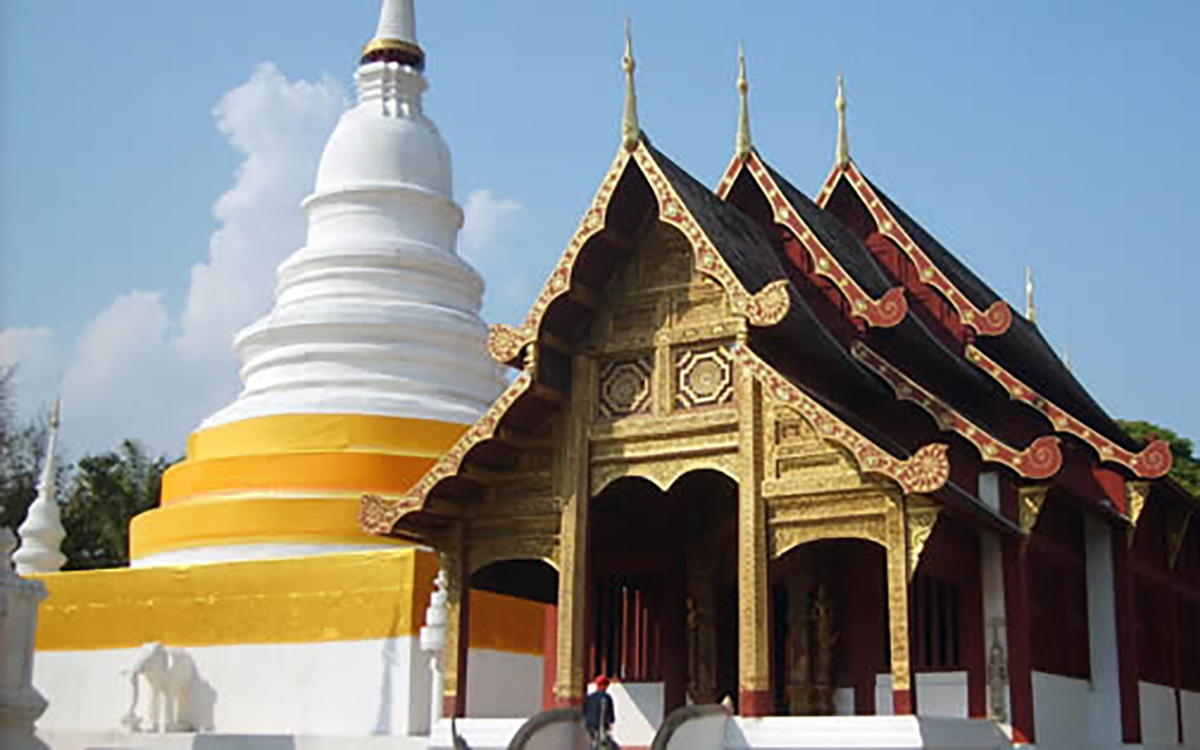Thailand
Thai activists prepare for country’s marriage equality law to take effect
Same-sex couples will be able to legally marry on Jan. 22

Thailand’s marriage equality law is set to take effect on Jan. 22.
The country will become the first one in Southeast Asia — and the third in the continent after Taiwan and Nepal — to extend marriage rights to same-sex couples.
Thai MPs passed the marriage equality bill on June 15, 2024, by a 210-180 vote margin. Four lawmakers abstained.
A report that YouGov, a global public opinion and data analytics company, published last July 31 found 32 percent of respondents expressed happiness about the marriage equality law, while 18 percent felt proud and 14 percent were hopeful. The report noted 74 percent of Gen Zers who responded expressed support for marriage equality, with greater support among women (81 percent) than men (67 percent).
After the law’s passage, Prime Minister Srettha Thavisin called it a “significant step” for Thailand.
“Equality and equity have become concrete in Thai society,” he said, adding he was hopeful that gender diversity would be fully accepted.
Thavisin also highlighted the government’s commitment to equal rights for LGBTQ couples. He stated the marriage equality bill would give them “the exact same equal rights” as heterosexual couples.
At the time the law was passed, several celebrities expressed their support.
Jeff Satur, a renowned singer and actor, shared his enthusiasm on social media.
“We have a right to love, and now every love is getting close to having a right to be protected by the laws,” he said.
With the law set to take effect on Jan. 22, the Washington Blade spoke with LGBTQ activists in Thailand about how they are preparing for marriage equality in the country.
“There is an excitement in the air, not only for activists who have been advocating for marriage equality for over two decades but also for LGBTIQN+ people in Thailand, who are eagerly waiting to welcome this law when it takes effect on Jan. 22, 2025,” said Hua Boonyapisomparn, a prominent transgender activist.
“I also believe that marriage equality advocates and LGBTIQN+ activists now plan to celebrate and support couples who are their peers and members of the LGBTIQN+ community to get married nationwide,” said Boonyapisomparn. “I believe that many couples will line up at the local registration office on the first day so that they can be recorded as the first couple in their respective province. In addition to this excitement, I hope to see that activists will monitor arising issues during the registration process and the effect of other legislations associated with the marriage equality bill. However, we should now forget about continuing the work because It is time for the celebration of love and equality for the LGBTIQN+ community in Thailand.”
Boonyapisomparn expressed her appreciation for everyone who contributed to advocating for marriage equality in Thailand. She also noted Thailand is not the “heaven” for LGBTQ people that many perceive it to be and stressed that achieving gender equality remains a significant goal for activists, even after the implementation of marriage equality.
“We should now forget about continuing the work because it is time for the celebration of love and equality for the LGBTIQN+ community in Thailand,” said Boonyapisomparn. “As activists, we stay focused on the goal and shared values, seek new allies, and adapt how we fight to overcome struggles. When we fight for love, we know love has no gender, and love will win over hatred, phobias, and violence.”
Boonyapisomparn, while talking to Blade, said that even though she was a part of the advocacy efforts in parliament, she can only hope this advance will open another door for legal gender recognition for which she and other trans activists have been advocating for more than a decade.
“I hope the equality win will not only stop at marriage equality as many other bills are waiting to get to the parliament of Thailand,” she said.
Midnight Poonkasetwattana, executive director of the APCOM Foundation in Thailand, an NGO that advocates for the rights and well-being of the LGBTIQ community across Asia, expressed excitement about the law coming into effect. He said he expects many happy couples and community celebrations on Jan. 22 and throughout the weekend.
“To celebrate this joyous occasion, APCOM, as part of the Thailand Pride working group will also host an event where LGBTQ couples will register their marriage at the Bang Rak district office — the most popular district that couples register their marriage because it is believed that it is an auspicious name and will make your love life happy (Rak in Thai means Love),” said Poonkasetwattana.
He further noted Bangkok Pride will host an event at a shopping mall where 1,448 couples will officially register their marriages.
“I am of course ecstatic that finally Thailand is showing leadership and taking a step up for LGBTQI inclusion and ensuring that we also have the same rights under the law,” aid Poonkasetwattana. “I am thankful to the community that has kept the advocacy momentum going despite many setbacks.” s
“It is undeniable that Thailand has benefited economically from its reputation as an LGBTQI paradise, owing to tourism, the service industry, and the BL series (the Boys’ Love (BL) series is a genre of Thai television shows and films that focus on romantic relationships between male characters. These series have gained immense popularity both within Thailand and internationally. A more inclusive society is a happier and more productive one,” he added. “With the recent passage of the LGBTQI marriage equality bill, it is time for Thailand to embrace and be empowered to include LGBTQI as one of its proud soft powers.”
Nada Chaiyajit, a prominent LGBTQ rights activist in Thailand, echoed Poonkasetwattana, describing the law as “groundbreaking.
“While the law has some shortcomings, such as retaining binary ‘father/mother’ terminology for parents rather than the more inclusive ‘primary parent’ proposed by activists, it is still a significant step forward,” said Chaiyajit. “The marriage equality law provides legal recognition and protection for diverse families, enabling LGBTIQAN+ individuals to enjoy the same rights and dignity as heterosexual couples when it comes to marriage and family establishment.”
Chaiyajit said the law has the potential to positively impact the lives of millions of LGBTQ people in Thailand by increasing societal acceptance, reducing discrimination, and affirming their fundamental human rights. She added it will send a powerful message that all individuals, regardless of their sexual orientation, gender identity, gender expression, and sex characteristics deserve equal treatment under the law.
Chaiyajit noted the work is far from over, emphasizing the need for continued advocacy by activists and organizations.
She highlighted the importance of pushing for further reforms, such as adopting entirely gender-neutral language for parenting and ensuring that religious objections do not hinder the law’s implementation.

Thailand
Thailand marriage equality law takes effect
Country is first in Southeast Asia to allow same-sex couples to marry

A law that extends marriage rights to same-sex couples in Thailand took effect on Thursday.
Media reports indicate hundreds of same-sex couples tied the knot across the country once the law took effect. The Bangkok Post reported Bangkok Pride and authorities in the Thai capital organized a mass wedding that took place at a shopping mall.
“Today, the rainbow flag is proudly flying over Thailand,” said Prime Minister Paetongtarn Shinawatra on X.
Thai lawmakers last year approved the marriage equality bill. King Maha Vajiralongkorn signed it last September.
Thailand is the first country in Southeast Asia to extend marriage rights to same-sex couples.
Same-sex couples can legally marry in Taiwan and Nepal.
-

 District of Columbia5 days ago
District of Columbia5 days agoActivists protest outside Hungarian Embassy in DC
-

 Virginia4 days ago
Virginia4 days agoSpanberger touts equality, reproductive rights in Arlington
-

 Books4 days ago
Books4 days agoTwo new books on dining out LGBTQ-style
-

 Theater4 days ago
Theater4 days ago‘Andy Warhol in Iran’ a charming look at intersection of art, politics











